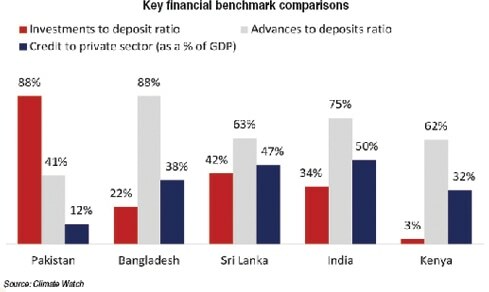DESPITE a bumper wheat crop in Khyber Pakhtunkhwa, farmers are not likely to reap maximum financial benefit of their months of hard work.
They don’t appear to be in a position to receive a fair price of their crop because of a strong clique of arhtees (middlemen), in cahoots with officials, who are at work to make some quick money.
“Pakistan Agricultural Storage and Services Corporation (Passco) should intervene to protect farmers’ interest and help them get due price of their hard work,” said the vice president of Aiwan-e-Zaraat (Chamber of Agriculture) Mohammad Moazzam Kamran in Dera Ismail Khan.
Farmers had begun wheat harvesting more than a week ago, but local food controller have not opened its wheat procurement centres so far, putting the growers at a disadvantageous position, he added.
Similar views were expressed by Iqbal Khan, a big farmer from Gandi Umer Khan, from DI Khan.
“The government has fixed Rs 3000 per 100 kgs as wheat support price, but farmers are disposing off their yield at a price as low as Rs 2450 per 100 kgs,” said Khan, who had cultivated wheat on 1500 kanals rain-fed and rodh-koee irrigation system.
According to him, he got a good crop this year, far better than the last year’s yield, because of timely rains, but not a fair price so far.Dera Ismail Khan is among those Khyber Pakhtunkhwa districts that produce a good quantity of wheat crop every year.
The province produces one-third of its total annual wheat consumption requirement of 3.3 million tonnes. Of the one million tonnes wheat produced locally, around 75,000 tonnes are produced in DI Khan, the highest after Peshawar district.
Kamran said a good number of the growers in Dera Ismail Khan had borrowed money to cultivate wheat. “Now they cannot wait for a long time as they have to realise their costs, repay their loans and earn profit”. Kamran, a small farmer, has cultivated wheat on 100 acres.
Khan said several farmers in the Gandi Umer Khan area always prefer local wheat dealers over the official wheat procurement centres.
Explaining, he said standards set by the official wheat procurement procedures usually prove to be too cumbersome for the farmers. “When we take our wheat stock to official godowns, officials reject our stocks, citing failing prescribed standards as the reason,” said Khan, adding, “In this way growers incur heavy losses due to expensive transport charges.”
Besides, farmers sometimes have to wait for at least two days with their consignments of wheat loaded in trucks, with each truck charging a fee of Rs2,000 per day.
“If you come to know after a wait of two days that your wheat does not meet the official standards, then what is the use of incurring an additional cost of Rs 4,000 for transport?” demanded Khan.
Many DI Khan farmers sell their wheat crop yield to local players. According to Khan, the local food department preferred to procure wheat from its agents who procured wheat from local farmers at around Rs2,200 to Rs2,300 per 100kgs, and selling it to the government at Rs3000.
Growers also claimed their complaints to the local food department were of no avail. They said the food directorate has not even started providing sacks to farmers, accusing the authorities of using delaying tactics to compel growers to sell their wheat stocks in the open market.
“This would reduce our profits by Rs 500 to Rs 600 per 100kgs,” said Kamran.













































Dear visitor, the comments section is undergoing an overhaul and will return soon.